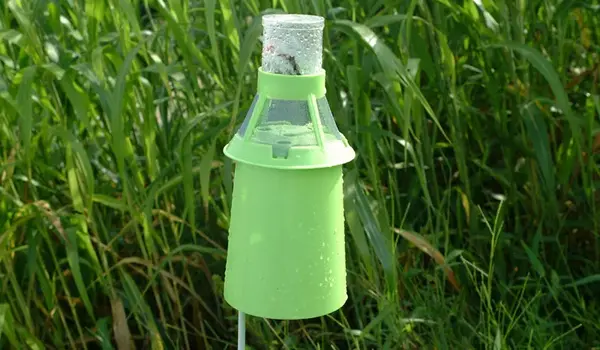Integrating Integrated Pest Management (IPM) with organic farming practices creates a holistic approach to crop protection that enhances sustainability and minimizes environmental impact. IPM is a comprehensive strategy that combines various pest control methods to manage pest populations in an economically and ecologically sound manner. When integrated with organic farming, IPM can significantly improve crop health and yield while adhering to organic principles. This blog explores how IPM can be effectively combined with organic farming practices and highlights how products from Humic Factory can support this integration. Integrated Pest Management is a multi-faceted approach to managing pests that focuses on long-term prevention and control. It involves the following key components: Monitoring and Identification: Regular monitoring of pest populations and accurate identification of pests are crucial. This helps in determining the appropriate control measures and avoiding unnecessary interventions. Cultural Control: Modifying farming practices to reduce pest habitats and improve plant health. This includes crop rotation, altering planting dates, and selecting pest-resistant varieties. Biological Control: Utilizing natural predators, parasites, and pathogens to control pest populations. For instance, releasing beneficial insects like ladybugs or using microbial agents to target specific pests. Mechanical and Physical Controls: Implementing physical barriers or traps to manage pests. Techniques include using row covers, hand-picking pests, and installing traps. Chemical Control: When necessary, applying pesticides. In organic farming, this involves using approved organic pesticides that have minimal environmental impact. 1. Enhancing Soil Health Healthy soil is the foundation of a successful organic farming system and plays a critical role in pest management. Integrating IPM with organic practices starts with enhancing soil health through: Organic Amendments: Using products like Humic Factory’s organic compost and soil conditioners improves soil structure, nutrient availability, and microbial activity. Healthy soil promotes strong plant growth, making crops more resilient to pests. Humic Acid Products: Humic acids enhance nutrient uptake and improve soil’s water-holding capacity. This leads to healthier plants that can better withstand pest pressure. 2. Encouraging Beneficial Insects Biological control is a core component of IPM and can be effectively integrated with organic farming: Habitat Creation: Organic farming practices that include diverse planting and maintaining natural habitats can attract and support beneficial insects. This includes planting flowering cover crops and maintaining hedgerows. Beneficial Insects: Introduce or encourage natural predators like ladybugs, lacewings, and predatory beetles. Humic Factory’s biofertilizers can support plant health, making them more attractive to beneficial insects. 3. Implementing Cultural Controls Cultural practices play a significant role in reducing pest pressures: Crop Rotation: Rotating crops helps break pest life cycles and reduces the buildup of pest populations. Humic Factory’s soil conditioners support healthy crop rotation by enhancing soil fertility and structure. Resistant Varieties: Selecting pest-resistant crop varieties can reduce the need for chemical interventions. Organic farming practices often include the use of such varieties, which can be supported by the addition of Humic Factory’s organic nutrients. 4. Utilizing Physical Controls Physical and mechanical controls can be easily integrated into organic farming: Traps and Barriers: Use traps and barriers to prevent pest access. Techniques like row covers and floating row covers can be used to protect crops from pests. Humic Factory’s products can enhance soil health, making plants stronger and more resistant to physical damage. Hand-Picking: Regularly removing pests by hand can be an effective control method. Maintaining a clean and well-managed farm with the help of organic practices can make hand-picking easier and more effective. 5. Applying Organic Pesticides When chemical control is necessary, organic farmers use approved substances: Organic Pesticides: Use organic pesticides that are certified for use in organic farming. Ensure they are applied as a last resort and in conjunction with other IPM strategies. Humic Factory’s organic products can enhance the effectiveness of these pesticides by promoting overall plant health and reducing the need for frequent applications. 1. Improved Crop Health By combining IPM with organic practices, crops benefit from a comprehensive approach that enhances overall health and resilience. Healthy plants are less susceptible to pest damage and can recover more quickly. 2. Reduced Environmental Impact Integrating IPM with organic farming minimizes the use of synthetic chemicals, reducing the environmental impact. This approach promotes biodiversity, protects beneficial organisms, and conserves natural resources. 3. Enhanced Soil Fertility Organic farming practices, supported by Humic Factory’s products, improve soil fertility and structure. Healthier soil supports stronger plant growth and reduces the need for chemical pest control. 4. Economic Efficiency Effective pest management through IPM can reduce crop losses and the need for costly chemical inputs. This results in improved economic efficiency for farmers. 5. Sustainable Farming Practices Combining IPM with organic farming supports long-term sustainability by promoting practices that preserve soil health, protect the environment, and ensure food safety. Integrating Integrated Pest Management (IPM) with organic farming practices offers a holistic approach to pest control that enhances sustainability and productivity. By focusing on soil health, beneficial insects, cultural controls, and organic pesticides, farmers can manage pests effectively while adhering to organic principles. Humic Factory’s products, including organic amendments, humic acids, and biofertilizers, play a crucial role in supporting this integration, improving soil health, and boosting plant resilience. Embracing this comprehensive approach helps farmers achieve better crop health, reduce environmental impact, and promote long-term sustainability in agriculture. For those looking to optimize their farming practices, integrating IPM with organic farming principles is a valuable step toward a more sustainable and productive future.Understanding Integrated Pest Management (IPM)
Integrating IPM with Organic Farming Practices
Benefits of Integrating IPM with Organic Farming
Conclusion


Submit your contact number to receive exclusive updates
Something went Wrong Please try again!!!
Bulk Purchase
Get Bulk Discount
Get Discount Code now
फोन नंबर सबमिट करे और ऑफर पाए
We believe farming is hard. This is our attempt to support farmers. Submit your contact details to receive a discount and other offers from Humic Factory.

Recommended Products
COPYRIGHT © 2024. All Rights Reserved By Humic Factory


